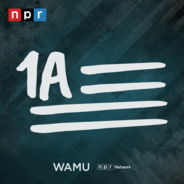On Friday, the Centers for Disease Control and Prevention’s vaccine advisory panel voted to end a recommendation that all newborns be immunized at birth against hepatitis B. That guidance had been in place for more than 30 years. Hepatitis B is a highly infectious virus that can cause severe liver damage, including cirrhosis and cancer.The members of this panel, known as ACIP, were handpicked by Health and Human Services Secretary Robert F Kennedy Junior. That’s after he abruptly fired all the previous 17 members of the panel earlier this year. That which led top officials at the CDC to resign in protest.His new members have publicly stated they want to revisit the entire childhood vaccine schedule. And after the panel’s recent meeting, President Donald Trump expressed support for such a review.How will ending the recommended Hepatitis B shot for newborns affect public health? And what’s next for childhood vaccinations?Find more of our programs online. Listen to 1A sponsor-free by signing up for 1A+ at plus.npr.org/the1a. Learn more about sponsor message choices: podcastchoices.com/adchoicesNPR Privacy Policy

Nachrichten
1A Folgen
Listening to the news can feel like a journey. But 1A guides you beyond the headlines – and cuts through the noise. Let's get to the heart of the story, together – on 1A.Support NPR and get your news sponsor-free with 1A+. Learn more at plus.npr.org/the1a
Folgen von 1A
299 Folgen
-
Folge vom 11.12.2025The CDC, RFK Jr., And Childhood Vaccine Schedules
-
Folge vom 08.12.2025'If You Can Keep It': Trump And Matters Of Military LawAs of Thursday, the Pentagon says it’s attacked 23 boats and killed at least 87 people as part of the Trump administration’s campaign against drug trafficking in the Caribbean.In the months since the first strike on Sept. 2, one question has emerged that Defense Secretary Pete Hegseth cannot seem to shake: Are these boat strikes legal?The White House says yes. But several members of Congress, legal experts, and former defense and intelligence officials have their doubts. Questions also remain about whether it’s legal for President Donald Trump to deploy the National Guard in cities across the country.In this installment of our weekly politics series, “If You Can Keep It,” we convene a panel of experts on military law to help us find answers.Find more of our programs online. Listen to 1A sponsor-free by signing up for 1A+ at plus.npr.org/the1a.Learn more about sponsor message choices: podcastchoices.com/adchoicesNPR Privacy Policy
-
Folge vom 06.12.2025The News Roundup For December 5, 2025Defense Secretary Pete Hegseth was under the spotlight this week. Lawmakers on Capitol Hill are demanding video and audio of a “double-tap” strike he ordered on a boat allegedly carrying drugs into the U.S.The Trump administration has halted immigration applications from 19 countries. This comes after the shooting of two National Guard members by an Afghan national in Washington D.C.The city of San Francisco filed a lawsuit against food manufacturers over ultra processed products. It’s the first of its kind and argues that cities and states have been burdened with treating the diseases the food causes.Meanwhile, graphic depictions of at least two survivors being killed by a second U.S. military strike on an alleged Venezuelan drug boat sparked outrage on Capitol Hill. This comes as tensions between Caracas and Washington reach a fever pitch.Venezuelan President Nicolas Maduro confirmed that he did speak with President Donald Trump in a phone call that he described as “cordial.”An American delegation attended talks in Moscow, hoping to end the war in Ukraine. Russian President Vladimir Putin declined to compromise during negotiations.And the Israeli government announces it will reopen the Rafah border crossing, but only to for Palestinians to leave Gaza.Find more of our programs online. Listen to 1A sponsor-free by signing up for 1A+ at plus.npr.org/the1a. Learn more about sponsor message choices: podcastchoices.com/adchoicesNPR Privacy Policy
-
Folge vom 04.12.2025Combating The Rise In Pedestrian Deaths In The USBetween 2010 and 2022, pedestrian deaths in the U.S. jumped nearly 80 percent.Since then, the number of walkers struck and killed by cars has remained stubbornly high – with pedestrian deaths in some cities continuing to rise.What’s made our streets so dangerous and what can we do about it?Find more of our programs online. Listen to 1A sponsor-free by signing up for 1A+ at plus.npr.org/the1a. Learn more about sponsor message choices: podcastchoices.com/adchoicesNPR Privacy Policy
